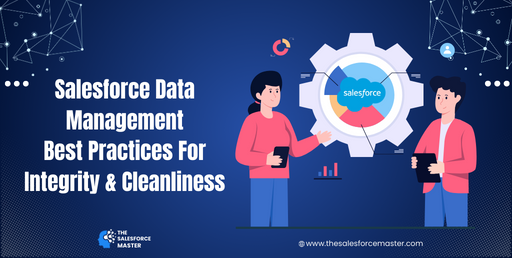
Introduction to Salesforce Data Management
Managing data within Salesforce is crucial for ensuring data integrity and cleanliness. By following best practices, organizations can enhance the efficiency and effectiveness of their marketing strategies. This guide outlines key practices for maintaining high-quality data in Salesforce.
Implementing Data Governance Policies
Establish Clear Data Ownership Data ownership must be defined. Assign specific team members to manage different data sets. Clear ownership helps in maintaining accountability, ensuring data is regularly reviewed and updated.
Regular Data Audits Perform routine data audits to identify inconsistencies and errors. These audits can uncover duplicates, incomplete records, and outdated information. Salesforce Marketer tools can automate parts of this process, making it easier to maintain data accuracy.
Standardize Data Entry Creating standardized data entry protocols is essential. Use Salesforce’s validation rules to enforce these standards. Standardization reduces the risk of errors and ensures uniformity across the database.
Enhancing Data Quality Through Automation
Leverage Salesforce Data Cleansing Tools Salesforce provides various tools for data cleansing. Use tools like Duplicate Management and Data.com Clean to identify and merge duplicate records. This ensures a single, accurate view of each customer.
Implement Automated Workflows Automated workflows can help maintain data cleanliness. For instance, setting up workflows to alert team members about incomplete records can ensure timely data updates. Salesforce Marketer workflows can also automate tasks like email updates to customers, and keeping records current.
Use Third-Party Integration for Enrichment Integrate third-party data sources to enrich your Salesforce data. Tools like Salesforce AppExchange offer various data enrichment apps. These integrations provide additional data points, enhancing the overall quality and completeness of your records.
Maintaining Data Integrity with Best Practices
Enforce Access Controls Access controls are vital for maintaining data integrity. Use Salesforce’s role-based access control to restrict who can view or edit specific data. This prevents unauthorized changes and maintains data consistency.
Regular Data Backups Perform regular data backups to safeguard against data loss. Salesforce provides native backup solutions, but third-party options are also available for added security. Regular backups ensure that data can be restored in case of corruption or accidental deletion.
Training and Education Educate your team on data management best practices. Regular training sessions can help team members understand the importance of data quality and the specific processes in place. This training should cover how to use Salesforce Marketer tools effectively to enhance data management efforts.
Conclusion
Maintaining data integrity and cleanliness in Salesforce is an ongoing process that requires attention to detail and adherence to best practices. By implementing clear data governance policies, leveraging automation, and enforcing strict access controls, organizations can ensure that their data remains accurate and reliable. Regular training and the use of Salesforce Marketer tools further support these efforts, resulting in high-quality data that drives successful marketing strategies.



